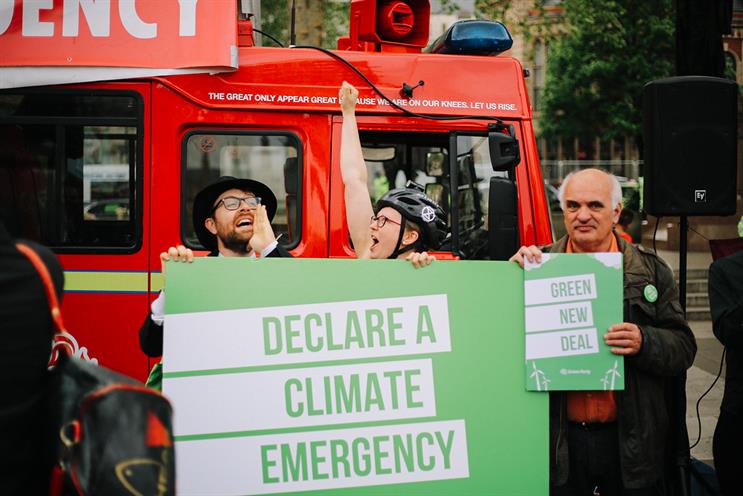At the moment, you can divide adland into two groups – agencies that have had a meeting with Extinction Rebellion and agencies that are trying to set up a meeting with the organisation. Since the climate activist group protested at Cannes this year, it has become the must-have "client" for any respectable ad business wanting to nail its green flag to the mast.
Clearly, connecting with Extinction Rebellion would be a shrewd PR move and ad businesses have much to gain by association with the group. But agencies that think they have anything to offer Extinction Rebellion are kidding themselves. The organisation that put the fight against climate change at the top of the agenda and whose awe-inspiring feats include closing down five major bridges in London in a day doesn’t need much assistance from this industry. We have a lot to learn from the group, however.
This industry needs a lesson in how to actually do something "good". It’s very fashionable to talk about or appear to be doing your bit. Many agencies are working to become B Corp-certified and adland has even held its own climate summit. But if you aren’t doing anything tangible to help reverse climate change, improve sustainability or reduce your and your clients’ impact, all you’re doing is engaging in a load of greenwashing.
The vision of B Corp is of course to be celebrated; balancing purpose and profit, and legally agreeing to look after people and the planet, is definitely a force for good. But is it little more than a box-ticking exercise for service-sector industries such as advertising if you don’t actually manufacture goods or operate a supply chain? Rather than clamouring to be recognised through that sort of governance ourselves, we should help our clients make the changes needed to get them certified.
If businesses in the service sector really want to make a difference, they should consider signing up to the initiative, whereby a company contributes 1% of its profits directly to environmental causes. Along with that, if they haven’t already, agencies should get their houses in order by sharing office space with other businesses, reducing their waste and air miles. Crucially, agencies should make sure the climate crisis is a top priority for all of their clients. We’re in a position to offer clients ideas and business solutions that do something positive for the planet and build brand fame through that. All of this requires a concerted effort, but it beats spending time on meaningless flag-waving.
It’s amazing how quickly the industry spotlight switches from issue to issue. Last year, all ad people could talk about was artificial intelligence; now, it’s the climate crisis. The reality is that profits and commercial gain top the priority list for the advertising business, whatever lens we’re choosing to look through at the moment.
The biggest focus for most ad executives is their exit strategy. But what is the point of an exit strategy when the planet we live on is dying? The whole model of unsustainable growth, sold off to the highest bidder to create individual personal wealth with little long-term value, is frankly old-fashioned. The United Nations has warned that we have only 11 years left to prevent irreversible damage from climate change. We need to wake up to how we can do everything we possibly can. There is no time left for talk.
Steven Bennett-Day is founder of Few & Far


